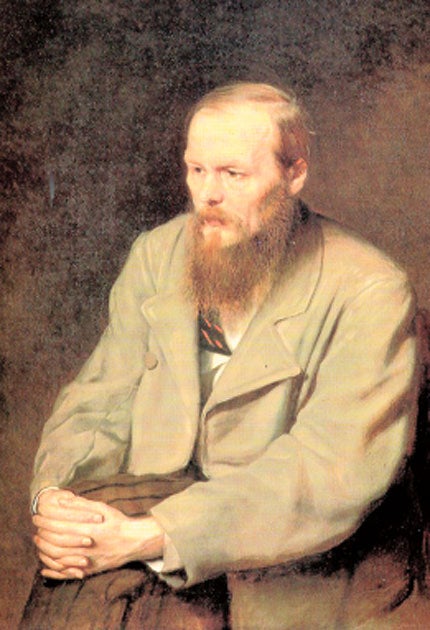Book of a lifetime: The Brothers Karamazovby, Fyodor Dostoyevsky

Your support helps us to tell the story
From reproductive rights to climate change to Big Tech, The Independent is on the ground when the story is developing. Whether it's investigating the financials of Elon Musk's pro-Trump PAC or producing our latest documentary, 'The A Word', which shines a light on the American women fighting for reproductive rights, we know how important it is to parse out the facts from the messaging.
At such a critical moment in US history, we need reporters on the ground. Your donation allows us to keep sending journalists to speak to both sides of the story.
The Independent is trusted by Americans across the entire political spectrum. And unlike many other quality news outlets, we choose not to lock Americans out of our reporting and analysis with paywalls. We believe quality journalism should be available to everyone, paid for by those who can afford it.
Your support makes all the difference.'The Brothers Karamazov' has been my friend since I was 18 and first read David Magarshack's 1958 translation. Then as now it struck me as the grandest, richest and strangest of Dostoyevsky's four "big" novels. True, bookish teenagers can be overly partial to "sensitive murderers and soulful prostitutes" (Nabokov's high-nosed dismissal of Dostoyevsky), and there's no denying the delirious melodrama in these books. But having lived with 'Karamazov' for 20-odd years, I am certain Kafka judged it correctly in arguing that Dostoyevsky's characters are not all lunatics – just "incidentally mad", like the rest of us.
'Karamazov' is a tale of parricide: three disparate siblings with a kindred urge to do in their dissolute father. Some argue that to create those brothers Dostoyevsky "merely" split himself three ways. I'd say that the point is that he contained sufficient multitudes to do so. In my youth I identified with Brother Ivan, the brooding atheist. These days I feel closer to Dmitri, with his drives, frustrations and tempers. I'm rarely stirred by the religious novice Alyosha, but then nor was Dostoyevsky. Ivan's radical doubt – indeed his heretical faith in "the force of the Karamazov baseness" – is what lays coals on the novel's fire.
Dostoyevsky's storytelling can be ragged: in his expansive structures and sudden turns he can sometimes remind you of Raymond Chandler's advice that the "stuck" writer should just have a man walk in with a gun. But his indisputable claim on greatness is as a maker of "scenes" charged by all kinds of fierce conflict: hence George Steiner's hailing of him as "one of the major dramatic tempers after Shakespeare".
My second favourite scene in 'Karamazov' – classic Dostoyevsky in its idea of redemption through suffering – is Dmitri's "good dream" after he has fallen asleep, exhausted, in the courtroom where he stands accused of murder. One heart-wrenching vision of unconditional love inspires Dmitri's confession to a crime he didn't commit. He has decided he is a sinner, and "such men as I need a blow, a blow of fate, to catch them as though with a lasso and bind them by a force from without". Arguably this is madness; also great pathos.
The scene I love best, though, is Ivan's hallucinated encounter with a shabby aristocratic devil who affably refutes his complex atheism. This might indeed be my favourite passage in literature, one that I stole and re-worked in my novels 'Crusaders' and 'The Possessions of Doctor Forrest'. I confess this freely (I want to be found out), and well-read readers might think it an annoying pseudery.
But in my teens I first heard of Dostoyevsky through a minor American novelist whose own name I've long forgotten – still, I owe that guy, and I believe in passing on the good word. To me this is what Christians mean by "stewardship", and as such I pray The Master (by which I mean Dostoyevsky) might approve.
'The Possessions of Doctor Forrest' by Richard T Kelly is published by Faber & Faber
Join our commenting forum
Join thought-provoking conversations, follow other Independent readers and see their replies
Comments